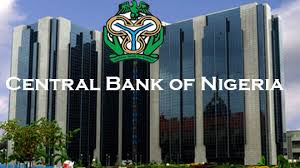Nike Popoola
The National Financial Inclusion Strategy being driven by the Central Bank of Nigeria will give more attention to women and the northern part of the country in the drive to achieve 20 per cent financial exclusion target by 2020.
The Governor, Central Bank of Nigeria, Godwin Emefiele, disclosed this in the National Financial Inclusion Strategy report for 2018, which was released on Friday.
He stated, “In order to meet the NFIS target of 20 per cent financial exclusion for adults by 2020, the strategy has been refocused to explore five priority themes of youth, women, rural areas, micro Small and Medium Enterprises and the northern region.
“These priority areas are expected to close identified gaps and tremendously advance financial inclusion. Emphasis will also be placed on the use of technological tools in improving access to finance among the underserved.
“Consequently, a stakeholder-driven implementation approach would give impetus to the achievement of the targeted outcomes. I am optimistic that the fundamental building blocks for incremental growth have already been laid.”
According to him, the financial exclusion rate of adults has progressively improved from 46.3 per cent in 2010 to 41.6 per cent in 2016 and 36.8 per cent in 2018 as against the NFIS target of 20.0 per cent by 2020.
The improved macroeconomic environment such as stable exchange rate, monetary and financial stability in the recent times had fostered a conducive environment for financial inclusion to thrive, particularly in the underserved segments of the country, he said.
The report said in 2018, the CBN and the Body of Bank Chief Executive Officers unveiled the Shared Agent Network Expansion Facility as a medium-term intervention facility.
This, it said, was geared towards leading the CBN-licensed Super Agents and Mobile Money Operators to fund the expansion of a Shared Agent Network and deploy agent banking facilities in underserved and financially excluded locations across the country.
It stated that the CBN also released the guidelines for licensing and regulation of Payment Service Banks.
The guidelines enabled selected companies, licensed as the PSBs, to provide payment and remittance services, issue debit and prepaid cards.
The CBN, in collaboration with Bankers’ Committee and the Nigerian Postal Service established the NIRSAL Microfinance Bank as a nationally licensed microfinance institution in December 2018.
The MFB would leverage the extensive network of the NIPOST to provide services in the 774 local government areas in the country.

Leave a Reply